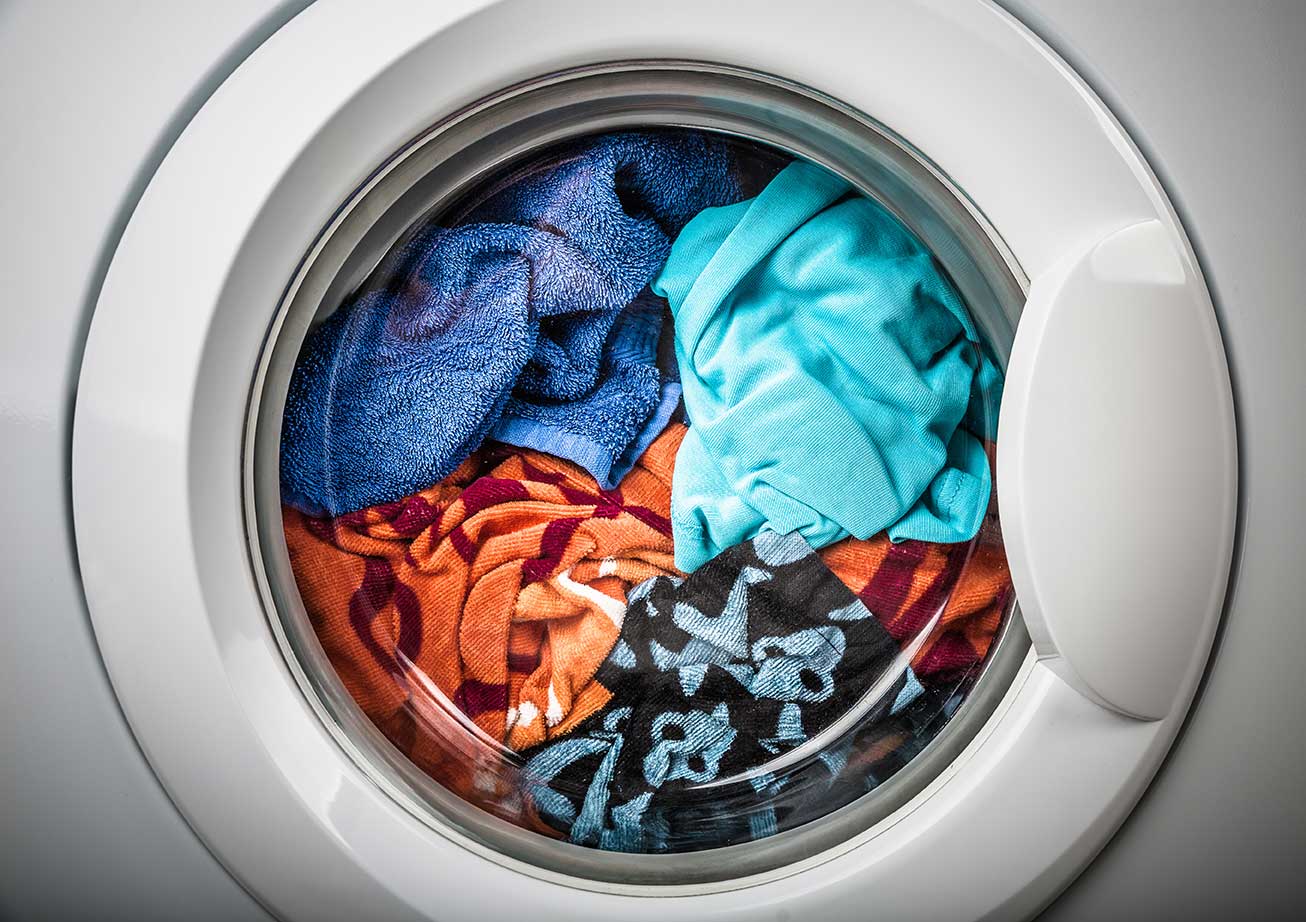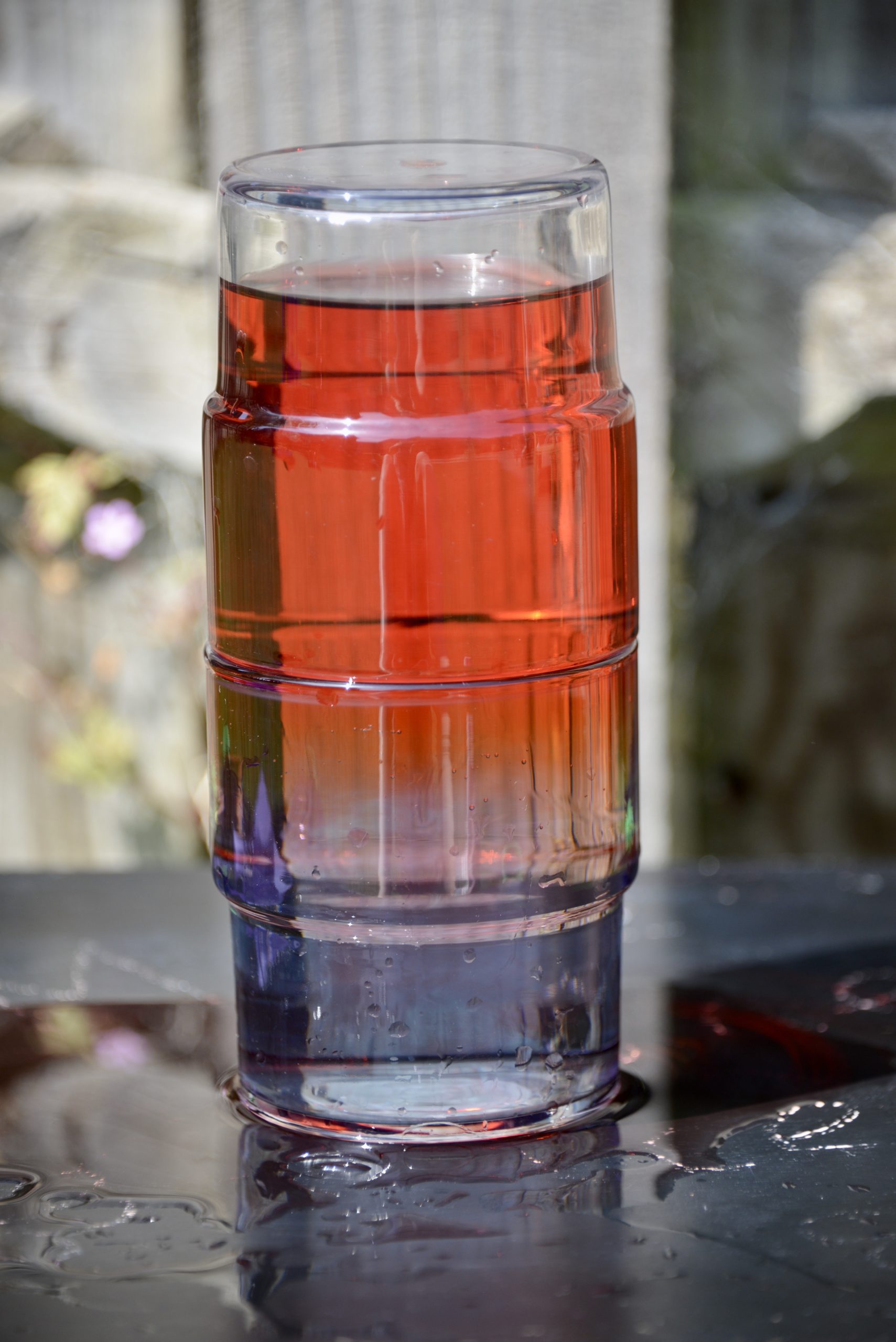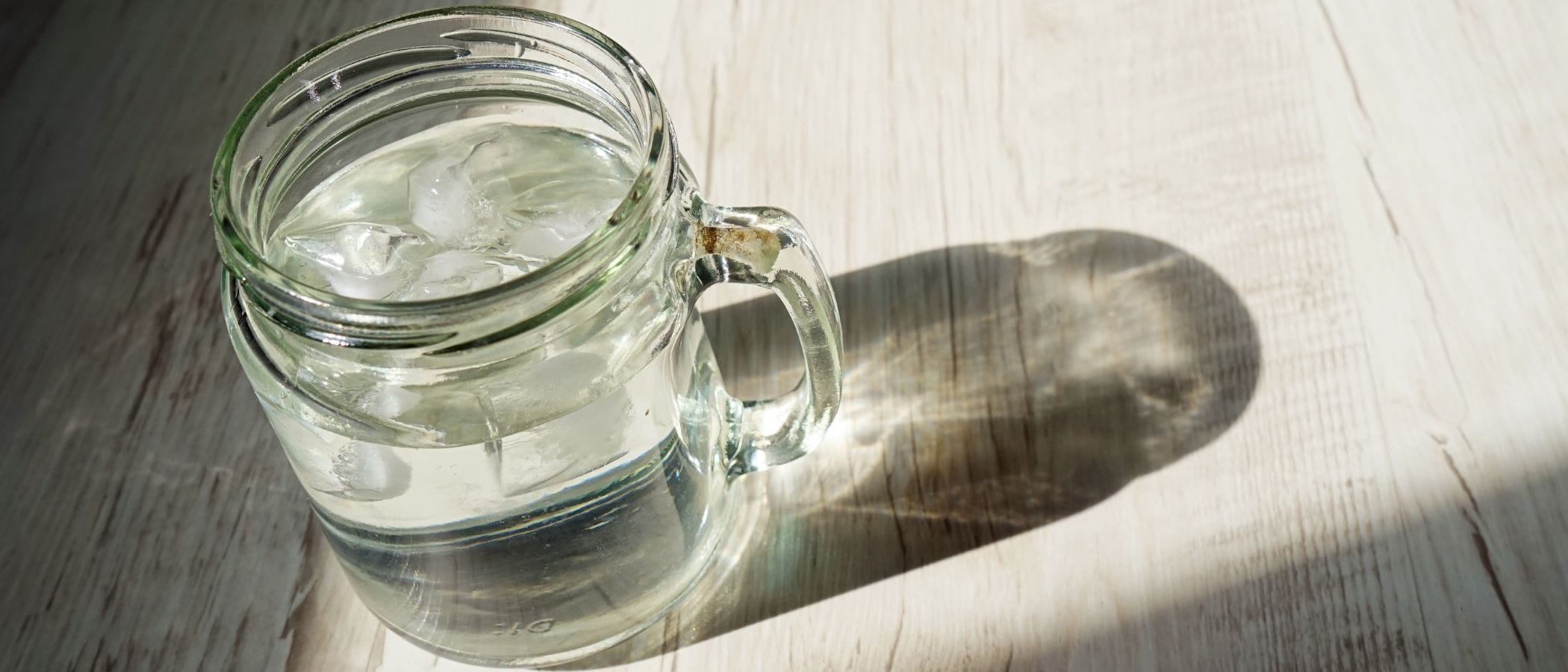Have you ever stood there, cleaning cloth in hand, wondering if you should turn the tap to cold or hot? It's a common thought, you know, a bit like trying to pick between two good web browsers when you just want to get things done. You might feel a little torn, and it can be hard to focus on just one answer for every cleaning job. Well, good news, because figuring out the best water temperature for cleaning is not as simple as a "well done!" after a long explanation. It really does depend on what you are trying to get clean.
Many people assume hot water is always the way to go for cleaning. They think it simply works better, or that it is faster at getting things sparkling. However, that is not always the whole story. Sometimes, using hot water can actually make a mess harder to clean, or even damage the surface you are working on. It's a bit like expecting one tool to fix every problem, when sometimes you need something quite different.
So, is it better to clean with cold or hot water? The truth, as it often is, has some mixed outcomes. Just like when you might try a search query on different engines and get varying results, the effectiveness of water temperature for cleaning can change based on the situation. We'll look at the specific times each temperature truly shines, helping you pick the right one for a truly clean space, starting right now, in mid-2024.
Table of Contents
- Understanding Water Temperatures and Cleaning
- The Power of Hot Water in Cleaning
- The Benefits of Cold Water in Cleaning
- Common Cleaning Scenarios: Hot or Cold?
- Frequently Asked Questions About Cleaning Water Temperature
- Making Your Cleaning Choices
Understanding Water Temperatures and Cleaning
Water temperature plays a big part in how well something gets clean. It's not just about how warm or cool the water feels, but what that temperature does to dirt, grime, and the surfaces themselves. You know, it's a bit like how a computer program might run faster or better depending on its setup. Water, in a way, has its own setup that changes how it works.
Hot water, as a matter of fact, generally makes molecules move faster. This can help break down certain types of dirt more easily. Cold water, on the other hand, might slow things down, but that slowness can be a good thing for other kinds of messes. So, when you are thinking about is it better to clean with cold or hot water, it's really about picking the right tool for the specific job at hand, you know?
The Power of Hot Water in Cleaning
Hot water often gets a lot of credit in the cleaning world, and for some very good reasons. It really can be quite effective at tackling certain types of dirt and making things feel much cleaner. Think about how much easier it is to wash greasy dishes with warm water compared to cold, for example. The warmth truly helps things along.
When Hot Water Is Your Best Friend
For breaking down grease and oil, hot water is usually the clear winner. The heat helps to melt fats and oils, making them less sticky and easier to wash away. This is why you will often see dishwashers using hot water for their cycles, or why restaurant kitchens rely on hot water for their cleaning needs. It just works better for those kinds of messes.
Sanitizing is another area where hot water truly excels. High temperatures can kill germs and bacteria on surfaces. This is especially important for things like cutting boards, bathroom fixtures, and anything that needs to be free of harmful microbes. So, if your goal is to get things not just clean but also really germ-free, hot water is often the way to go.
When you are dealing with sticky residues, like dried-on food or sugary spills, hot water can help dissolve them more quickly. The warmth helps to soften and loosen the bonds that hold the sticky stuff in place. This can make scrubbing much less of a chore, and you might find the job gets done a lot faster, too.
Hot Water and Cleaning Products
Many cleaning products are actually designed to work best with hot water. The heat can help activate the chemicals in detergents, allowing them to mix better with dirt and lift it away more effectively. So, if you read the label on your cleaning spray or soap, it might suggest using warm or hot water for optimal results.
Some products, like certain laundry detergents, dissolve much better in warmer water. If the detergent does not dissolve fully, it might leave residue on your clothes or surfaces. This is a bit like how some computer programs need specific settings to run without issues; cleaning products also have their ideal conditions, you know.
Downsides to Hot Water Cleaning
While hot water has its advantages, it also has some drawbacks. One big one is the energy cost. Heating water uses a good amount of energy, which can add up on your utility bills. So, if you are always using hot water for every cleaning task, you might be spending more money than you need to, which is something to think about, really.
Another thing to consider is that hot water can sometimes damage certain surfaces. For example, it can set some stains, especially those made of protein like blood or dairy. It can also cause some fabrics to shrink or colors to bleed. You know, it's like how resizing a browser window on YouTube can sometimes freeze the video; certain actions can have unintended side effects.
Hot water can also create more steam, which might not be ideal in all situations. Plus, if the water is too hot, there is a risk of burns. Safety is always a big consideration when cleaning, so being mindful of water temperature is important. You want to make sure you are working in a way that is both effective and safe for everyone around, you know.
The Benefits of Cold Water in Cleaning
Cold water often gets overlooked, but it is a surprisingly powerful cleaning agent for many situations. It is not just about saving energy; cold water actually performs better for specific types of messes. So, when you are asking yourself, is it better to clean with cold or hot water, sometimes the answer is actually cold, you know?
When Cold Water Is the Smart Choice
For protein-based stains, cold water is usually the hero. Things like blood, egg, or dairy products can actually cook and set into fabric or surfaces if you hit them with hot water. Cold water, on the other hand, helps to keep these proteins from bonding with the material, making them much easier to lift away. It's a bit like how some problems need a specific approach to get a better exception, otherwise, you just keep getting the same issue.
Certain delicate fabrics, especially those prone to shrinking or color fading, are much safer to wash in cold water. The cooler temperature is gentler on the fibers and helps to preserve the color and shape of the item. This is really important for extending the life of your clothes and other textiles, you know.
When you are cleaning up after pets, like pet messes that might contain urine or vomit, cold water can be a better choice. Hot water can sometimes spread odors or make certain organic materials more difficult to remove. Cold water helps to contain and lift these messes without setting them in. It can make the job feel a bit more manageable.
Cold Water and Stain Removal
For fresh stains, especially those that are not greasy, cold water can be incredibly effective. It helps to flush out the stain without spreading it or pushing it deeper into the fabric. Think about spilling juice or wine; cold water is often the first thing you reach for to dab and rinse the area. It just works, you know?
Some types of dirt, like mud or clay, are also better removed with cold water. Hot water can sometimes bake these types of dirt onto surfaces, making them harder to get off. Cold water helps to loosen them without setting them in place. This can make the whole cleaning process much faster in some cases.
Energy Savings with Cold Water
One of the biggest advantages of using cold water for cleaning is the energy savings. You do not need to heat the water, which means you are using less electricity or gas. This can lead to noticeable savings on your utility bills over time. It is a simple change that can make a difference for your wallet and the environment, too.
Using cold water also means less wear and tear on your water heater. This can potentially extend the life of your appliance, saving you money on repairs or replacements down the line. It is a small detail, but it can contribute to a better, more efficient home overall, you know.
Common Cleaning Scenarios: Hot or Cold?
So, we have talked about the general benefits of each temperature. Now, let's look at some everyday cleaning tasks and figure out when to use hot water and when cold water is the better choice. It's a bit like deciding if Google or Bing gives you the better outcome for a specific query; sometimes one just works better than the other, and it's not always obvious.
Dishes and Grease
For most dishwashing, especially when dealing with greasy pots, pans, and plates, hot water is typically the preferred option. The heat helps to break down and melt fats, allowing your dish soap to work more effectively at lifting away food particles. This leads to a truly clean and streak-free finish, you know.
However, if you have dishes with stuck-on, starchy foods like rice or oatmeal, a soak in cold water first might actually help loosen them without baking them onto the surface. After a cold soak, you can then switch to hot water for the main wash. It's a two-step approach that can be very effective.
Laundry Care
When it comes to laundry, the "is it better to clean with cold or hot water" question really depends on the fabric and the type of stain. For most everyday loads, especially dark colors or delicate items, cold water is usually sufficient and helps prevent fading and shrinking. It is a gentle way to get clothes clean without being too harsh, you know.
For heavily soiled items, whites, or linens that need sanitizing, hot water can be a good choice. It helps to kill germs and remove tough grime. However, always check the garment's care label first. You do not want to accidentally shrink your favorite shirt or make colors run. It is about making the web better through more open collaboration, or in this case, making your laundry better through smart choices.
For blood stains, or other protein-based stains like baby formula, always start with cold water. Hot water will set these stains, making them almost impossible to remove. After a cold water rinse, you can then proceed with your regular wash cycle. This is one of those times where cold water is clearly the better, faster choice.
General Surface Wiping
For wiping down general surfaces like countertops, tables, or floors, warm water is often a good all-around choice. It helps dissolve everyday dirt and grime without being too hot for your hands or sensitive surfaces. It's a pretty versatile option for daily tidying, you know.
If you are cleaning glass or mirrors, cold water can actually be better. Hot water can evaporate too quickly, leaving streaks behind. Cold water evaporates more slowly, giving you more time to wipe away the cleaning solution and achieve a truly clear, streak-free shine. It's a small trick that can make a big difference.
Blood and Protein Stains
This is a critical one where cold water is the absolute winner. If you encounter a blood stain, whether on fabric, carpet, or a hard surface, resist the urge to use hot water. Hot water will "cook" the protein in the blood, bonding it to the material and making it much harder, if not impossible, to remove. You know, it's like how some things are inherently faster than others; cold water is inherently better for this.
Instead, use cold water to rinse or blot the stain immediately. This helps to break down the proteins without setting them. For more details on effective stain removal, you can learn more about cleaning methods on our site. It really does make a difference.
Frequently Asked Questions About Cleaning Water Temperature
People often have specific questions when they are trying to figure out if it is better to clean with cold or hot water. Here are some common ones that come up, kind of like the "People Also Ask" section you see online.
Does hot water sanitize better than cold water?
Yes, generally, hot water is more effective at sanitizing. Higher temperatures can kill a wider range of bacteria and viruses on surfaces. For true sanitization, water usually needs to be very hot, often above 140°F (60°C), and applied for a certain amount of time. Cold water alone does not typically sanitize effectively, but it can still clean away dirt and germs, just without the germ-killing power of heat. It's important to remember this difference when you are aiming for a truly germ-free space, you know.
Is it better to wash clothes in hot or cold water?
For most everyday laundry, cold water is often the better choice. It saves energy, helps prevent colors from fading, and reduces the risk of shrinking clothes. Cold water is particularly good for dark colors, delicate fabrics, and items that are not heavily soiled. However, for very dirty items, white linens, or anything that needs to be disinfected, hot water can be more effective. Always check the care label on your clothing to make sure you are using the right temperature for that specific item. This can really make your clothes last longer, you know.
When should you use cold water for cleaning?
You should definitely use cold water for protein-based stains like blood, egg, or dairy, as hot water can set these. Cold water is also great for delicate fabrics that might shrink or bleed color in hot water. It is also the smart choice for saving energy and reducing utility bills. For general dusting or wiping down surfaces where no specific sanitization is needed, cold water works perfectly fine. It's a versatile option that can save you a bit of trouble and money, too.
Making Your Cleaning Choices
As you can see, when asking is it better to clean with cold or hot water, there is no single, simple answer that fits every situation. It truly depends on the specific mess you are tackling, the surface you are cleaning, and what your goals are. Just like trying to pick one solution for all your browser needs, sometimes you have to consider the nuances.
The key is to understand the properties of both hot and cold water and how they interact with different types of dirt and materials. By making informed choices, you can clean more effectively, save energy, and protect your belongings. It is about making your cleaning efforts truly work better for you, rather than just getting vague results.
So, the next time you reach for the cleaning supplies, take a moment to think about the task at hand. Is it greasy? Is it a fresh stain? Is it delicate? Your answer will guide you to the right water temperature, helping you achieve a truly clean result every time. For more smart home tips, you can also explore this page . It is all about finding what works best for you, really.



